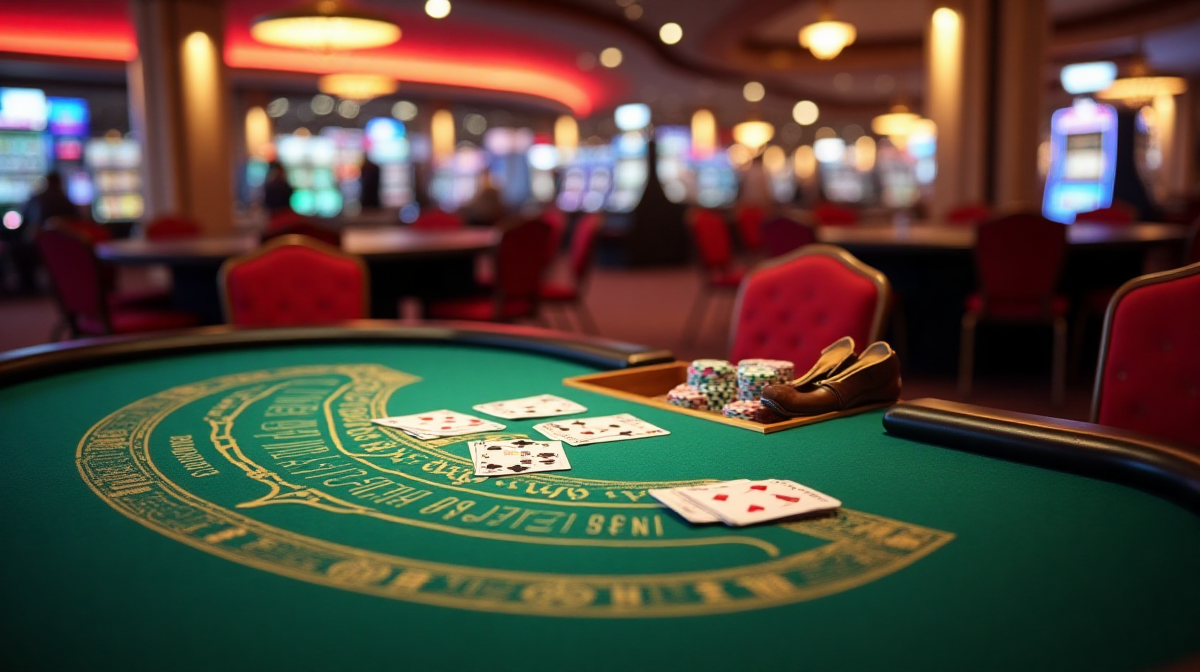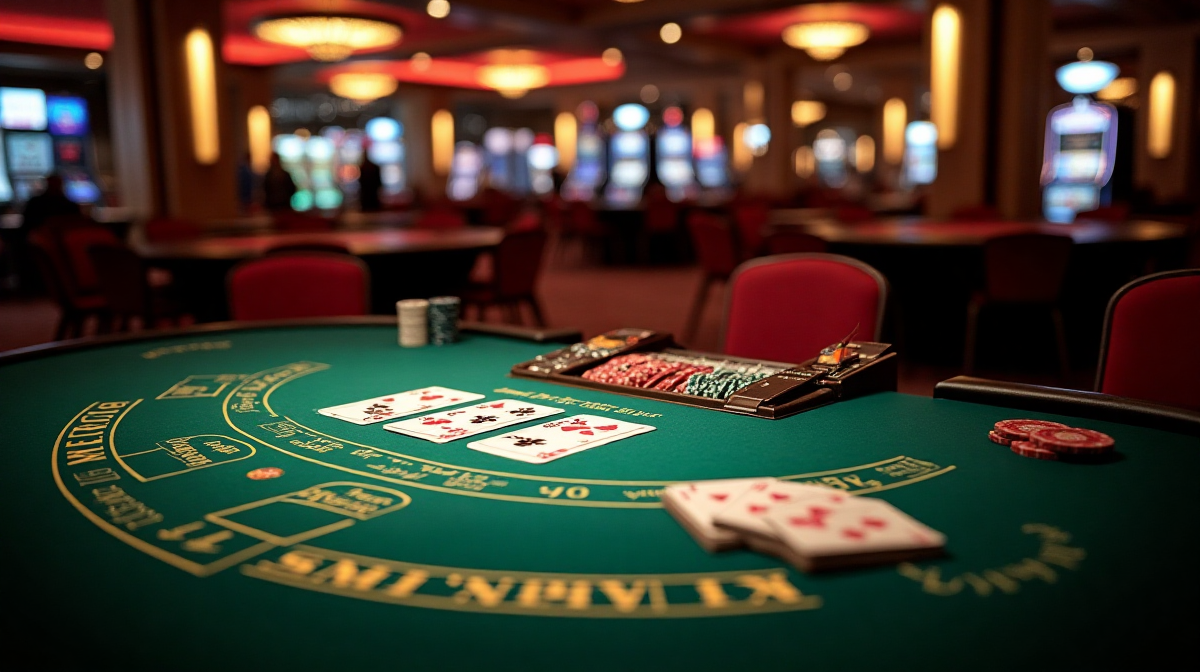Blackjack Strategy: Beat the Dealer Now!
Blackjack, a game of skill and chance, has captivated players for centuries. While often perceived as purely luck-based, a strategic approach can significantly improve your odds and potentially lead to consistent wins. This article delves into the core strategies, from basic to advanced, equipping you with the knowledge to navigate the felt and challenge the dealer. We will also explore considerations that might even influence your choices like looking at a turkey bet prediction today if you are also interested in other forms of wagering.
What is Blackjack? A Brief Overview of the Game
Blackjack, also known as 21, is played between a player and a dealer. The goal is to have a hand value closer to 21 than the dealer, without exceeding it. Cards are dealt face up (for the player) and face down (for the dealer), with each card having a numerical value: number cards are worth their face value, face cards (Jack, Queen, King) are worth 10, and an Ace can be worth 1 or 11. Understanding the rules is the first step to implementing a winning strategy. Sometimes, even looking at a turkey bet today prediction can give you a feel for the general flow of gambling strategy.
The House Edge: Why Casinos Typically Win
Casinos aren’t in the business of losing money. The house edge represents the statistical advantage the casino has over players in any given game. In blackjack, the house edge arises from the fact that the player must act first. If a player busts (exceeds 21), they lose their bet, even if the dealer subsequently busts. However, skilled players can reduce the house edge significantly, and even gain a slight advantage, by employing optimal strategies. Interestingly enough, tracking odds in blackjack shares similarities with analyzing a turkey bet.
Can You Really Beat the Dealer? Debunking Myths & Setting Realistic Expectations
While consistently beating the dealer isn't guaranteed, it's absolutely possible to improve your odds dramatically. Many myths surround blackjack, such as believing in hot streaks or card sequences. However, blackjack is a game of independent events. The key is to make statistically sound decisions based on your hand and the dealer's upcard. Staying informed, perhaps checking a turkey bet prediction today, coupled with disciplined strategy, is your best path to success. Don't rely on luck; rely on knowledge.
The Importance of Basic Strategy Charts
Basic strategy is a mathematically derived set of rules that tells you the optimal action to take in every possible blackjack scenario. It's not a guarantee of winning, but it minimizes the house edge. Using a basic strategy chart reduces the house edge to less than 1%, making blackjack one of the most favorable casino games for players.
Understanding Hard Hands – Hit, Stand, Double Down, Split
Hard hands are those where you don't have an Ace counting as 11, or where counting the Ace as 11 would cause your hand to bust. The basic strategy for hard hands revolves around hitting (taking another card), standing (ending your turn), doubling down (doubling your bet and receiving one more card), and splitting (separating pairs into two hands).
Understanding Soft Hands – Adjusting Play
Soft hands contain an Ace that's being counted as 11. These hands offer more flexibility as the Ace can be counted as 1 if you receive a card that would otherwise cause a bust. The strategy for soft hands differs significantly from hard hands, generally favoring hitting in more situations.
Pairs: When to Split, When to Hit, and When to Stand
Splitting pairs can be a very profitable move, but it's crucial to know when to do it. Always split Aces and 8s. Never split 10s. Other pairs, like 2s, 3s, 6s, and 7s, should be split under specific dealer upcard conditions.
Dealer’s Up Card: Key Consideration in Basic Strategy
The dealer's upcard is the single most important piece of information when making decisions. Basic strategy charts are designed to account for all possible dealer upcards. For example, you'll play differently against a dealer showing a 7 compared to a dealer showing a 2.
Free Basic Strategy Charts & Resources
Numerous resources provide free basic strategy charts. A quick online search will reveal several readily available options. Mastering these charts is the first step to becoming a winning blackjack player. Consider supplementing your knowledge with resources that also analyze other wagering options, like a turkey bet.
Card Counting: The Basics
Card counting is a technique used to track the ratio of high cards to low cards remaining in the deck. A higher ratio of high cards favors the player, as it increases the likelihood of blackjacks and dealer busts. Disclaimer: Card counting is not illegal, but casinos may ask you to stop playing if they suspect you are counting cards.
Hi-Lo System: A Popular & Relatively Simple Counting Method
The Hi-Lo system assigns values to cards: 2-6 are +1, 7-9 are 0, and 10-Ace are -1. You keep a running count as cards are dealt, adding or subtracting the appropriate value.
Keeping a Running Count & True Count
The running count needs to be converted to a true count by dividing the running count by the estimated number of decks remaining. The true count provides a more accurate indication of the deck's composition.
Adjusting Bets Based on the Count
When the true count is positive, it indicates a higher concentration of high cards, and you should increase your bets. Conversely, when the true count is negative, you should decrease your bets. This is where careful bankroll management becomes essential, as it’s similar to managing a turkey bet.
Shuffle Tracking
Shuffle tracking attempts to follow groups of cards through the shuffle process, giving the player an advantage in predicting where those cards will appear. This is an extremely complex technique requiring exceptional memory and observation skills.
Team Play
Team play involves multiple players working together to count cards and signal information to each other. This is a highly sophisticated strategy with potential legal issues.
Hole Carding
Hole carding involves glimpsing the dealer’s face-down card. This is extremely difficult and risky, as it's considered cheating and can result in severe consequences.
Why Bankroll Management is Crucial
Bankroll management is the practice of controlling your betting amounts to protect your funds and maximize your chances of long-term success. Without proper bankroll management, even the best strategy can lead to ruin.
Determining Your Starting Bankroll
Your starting bankroll should be sufficient to withstand losing streaks. A general guideline is to have at least 25-50 times the average bet you plan to make.
Unit Sizing: How Much to Bet Per Hand
A unit is a fixed percentage of your bankroll, typically 1-2%. Betting in units helps to manage risk and prevent catastrophic losses. Similar to analyzing a turkey bet, understanding your risk tolerance is key.
Avoiding the Gambler’s Fallacy
The gambler’s fallacy is the belief that past events influence future independent events. In blackjack, each hand is independent, and previous results have no bearing on the outcome of the next hand.
Setting Win/Loss Limits
Establish win and loss limits before you start playing. When you reach either limit, stop playing and walk away. This helps to prevent emotional decisions and protects your bankroll.
Proper Blackjack Table Manners
Be polite and respectful to the dealer and other players. Don't touch your cards after they've been dealt, and avoid giving unsolicited advice.
Understanding Casino Rules & Variations
Casinos have different rules regarding whether the dealer hits or stands on a soft 17 (S17 or H17). S17 is more favorable to the player. Knowing these rules is essential for optimal strategy.

Selecting the Right Table: Limits, Rules & Player Skill
Choose a table with limits that fit your bankroll and rules that are favorable to the player. Also, consider the skill level of other players at the table.
Avoiding Common Blackjack Mistakes
Avoid hitting on 17 or more, taking insurance, or splitting 10s. These are common mistakes that significantly increase the house edge. And remember, even analyzing a turkey bet requires avoiding common pitfalls.
Online vs. Land-Based Blackjack: Differences and Strategies
Online blackjack often uses random number generators (RNGs) to simulate card dealing, while land-based blackjack involves a physical deck of cards. While basic strategy remains the same, online blackjack may not be suitable for card counting due to the continuous shuffling of the deck.
Recap of Key Strategies
Mastering basic strategy, understanding bankroll management, and being aware of casino rules are the cornerstones of successful blackjack play. Advanced techniques like card counting can further improve your odds, but require significant practice and discipline.

The Importance of Practice & Patience
Blackjack is a game of skill, and it takes time and effort to master. Practice regularly, be patient, and don't get discouraged by losing streaks.
Resources for Further Learning
Numerous books, websites, and apps are available to help you learn and improve your blackjack skills. Explore these resources to deepen your understanding of the game.
Final Thoughts on Beating the Dealer & Enjoying the Game Responsibly
While consistently beating the dealer is challenging, it's achievable with the right knowledge, strategy, and discipline. Remember to gamble responsibly and enjoy the thrill of the game. Consider the potential risk and reward of every decision, just like evaluating a turkey bet.

